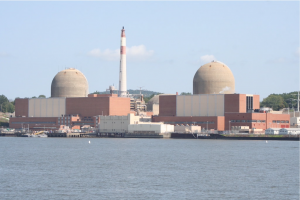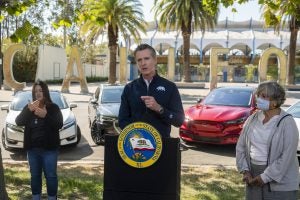 March 7, 2023
by Kimberly Wood
Energy
Fossil Fuels
March 7, 2023
by Kimberly Wood
Energy
Fossil Fuels
Long lines for gas and skyrocketing retail gas prices marked May 2021 as a memorable month for automobile owners. While gasoline shortages in the early 1970s were caused by an international oil embargo, this more recent supply shortfall resulted from…
 February 6, 2023
by Paige Power Kendrick
Air
Energy
Fossil Fuels
February 6, 2023
by Paige Power Kendrick
Air
Energy
Fossil Fuels
The last few years, especially these last few months, have seen aviation emission regulation like never before. At home and abroad, the aviation industry appears to be making significant inroads relating to emissions from engines “typically used in…
 November 18, 2022
by Lauren Miller
Energy
Fossil Fuels
November 18, 2022
by Lauren Miller
Energy
Fossil Fuels
New England is Facing a Gas Shortage that Could Threaten Many this Winter. What can be Done?
With winter fast approaching, many New England states and their residents are at risk of not having enough fuel to meet their heating and power generation…
 April 28, 2022
by Grace Gibson
Fossil Fuels
State and Local
Water
April 28, 2022
by Grace Gibson
Fossil Fuels
State and Local
Water
On November 20th, 2021, the Red Hill Bulk Fuel Storage Facility in Honolulu leaked 14,000 gallons of water and fuel.[1] The facility, constructed in the early 1940s, holds over 100 million gallons of fuel a mere 100 feet above the Southern Oʻahu Basal…
 March 25, 2022
by Abby Morenigbade
Fossil Fuels
International
March 25, 2022
by Abby Morenigbade
Fossil Fuels
International
What is the East African Crude Oil Pipeline?
In 2006, Uganda discovered what turned out to be 1.7 billion barrels of recoverable commercial oil in the Albertine Graben Region.[1] Since then, different activities relating to the exploration and potential…
 November 2, 2021
by Steve Brenner
Climate change
Energy
Fossil Fuels
State and Local
November 2, 2021
by Steve Brenner
Climate change
Energy
Fossil Fuels
State and Local
On October 27, 2021, the New York State Department of Environmental Conservation (NYSDEC) denied two applications for proposed natural gas-fired power plants.[1] New York State has denied permit applications for fossil fuel infrastructure before,[2] but…
 April 20, 2021
by Blake Ellis
Climate change
Energy
Fossil Fuels
Renewable Energy
April 20, 2021
by Blake Ellis
Climate change
Energy
Fossil Fuels
Renewable Energy
In February 2021, the state of Texas experienced unprecedented power outages caused by severe winter storms. Conservative politicians and media were quick to blame the use of renewable energy as the culprit of the outages. The facts present a different explanation.
 October 25, 2020
by Hyunjin Kim
Air
Chemicals
Climate change
Fossil Fuels
International
October 25, 2020
by Hyunjin Kim
Air
Chemicals
Climate change
Fossil Fuels
International
"Normal was a crisis." When we say we want to "go back to normal," do we really mean the world exactly as we left it? Or, could we use COVID as a means of building something better than what we had, perhaps greener?
 October 20, 2020
by Camden Douglas
Air
Climate change
Fossil Fuels
Regulations
State and Local
October 20, 2020
by Camden Douglas
Air
Climate change
Fossil Fuels
Regulations
State and Local
On September 23, 2020, California Governor Gavin Newson issued an executive order[1] that is expected to reduce the impact of climate change by drastically transforming the State's transportation industry. California experiences many unique climate change-related problems. For instance, as a result of climate change, the duration of California's wildfire season has more than doubled since 1980.[2] Indeed, this year, California is experiencing a record-breaking burn,[3] with wildfires scorching millions of acres of land.[4] The executive order, in an attempt to attenuate some of these climate change-related impacts on the State, requires all new passenger vehicles sold in California to be zero-emission by 2035, effectively banning the sale of new gasoline-powered vehicles in just fifteen years.[5]
 April 21, 2020
by Simon Moskovitz
Fossil Fuels
Regulations
April 21, 2020
by Simon Moskovitz
Fossil Fuels
Regulations
The Environmental Protection Agency (EPA) and National Highway Traffic Safety Administration (NHTSA) recently released the final SAFE Vehicles Rule. The rule sets forth requirements for emissions and efficiency in vehicles for model years 2021-2026 and revokes the Clean Air Act waiver to California.











